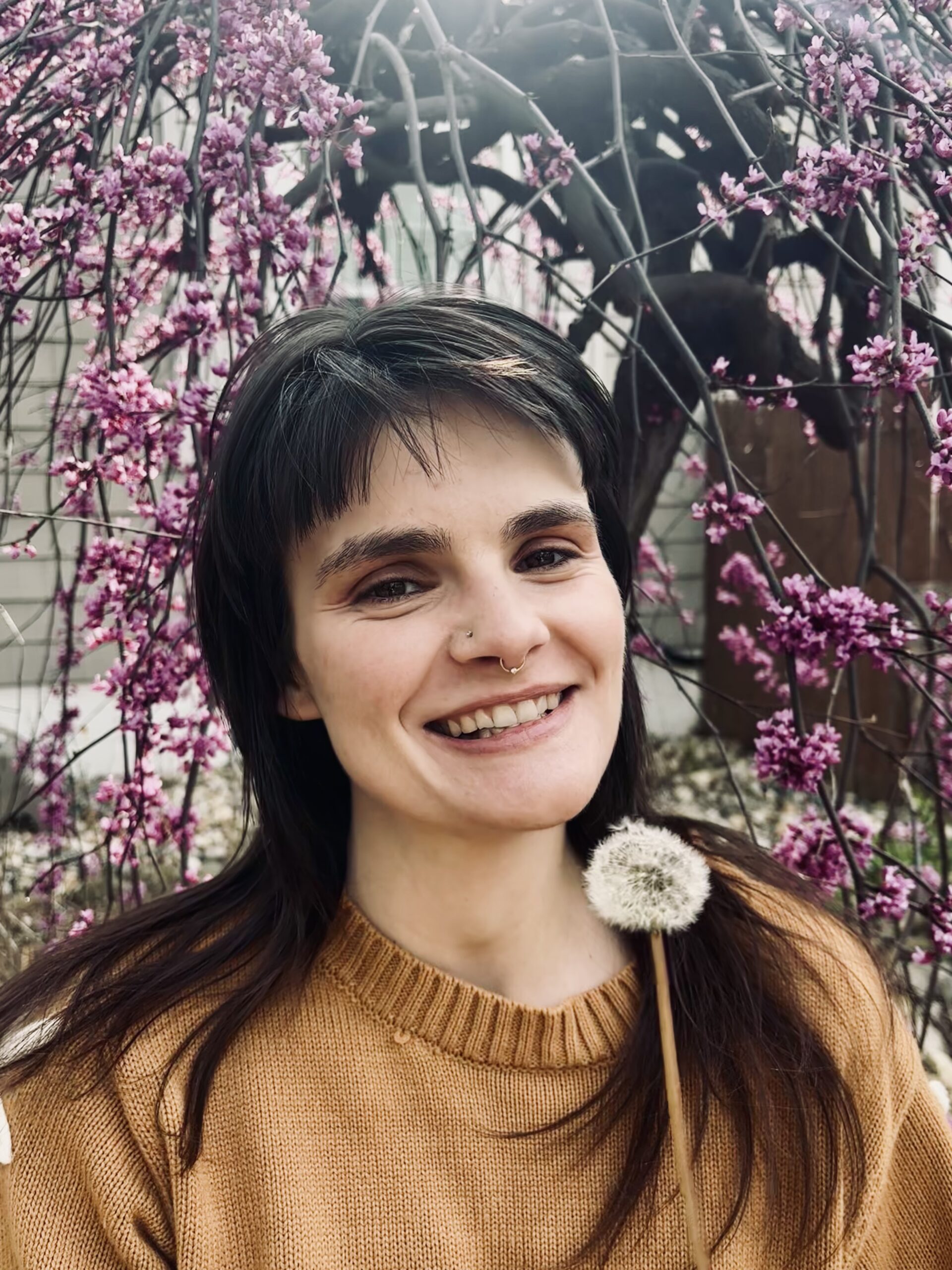Blog
A Wish, A Seed, A Remembering
In recent years, making a wish on a dandelion has become a reclaimed birthday ritual of mine. When I was a child, I believed the cottony dandelion fields that would appear around my birthday were a magical gift, as if the Earth had made them just for me. I would run through them, kicking up the puffs, blowing out fluffy bouquets, hoping that something bigger than myself would see me as worthy.
As I grew up, I stopped believing in magic and wishes, but I never stopped searching for worth outside of myself. I was taught to look for it in more “grown-up” places: my career, my religion, my family, and the roles I played. I learned that the more I could produce, suppress, or endure, the more purpose, belonging, and love I deserved. But that kind of self-abandonment has a cost. Over time, it left me feeling empty.
At work, I was told my efforts would lead to meaningful change, but more often, it felt like my labor served egos and bottom lines–not purpose. In church, I was promised eternal salvation if I obeyed and served, but when injustice against my body called for deliverance in this life, their silence was louder than their sermons. In my family system, I was told I was loved, but that love felt conditional when my expressions of authenticity were met with intolerance.
In a society that treats people–and the planet–as commodities, I started to wonder: if I had nothing left to give, did that make me worthless? I know I wasn’t the only one feeling used up. I could see this story of burnout everywhere–in the way we’re taught to monetize every passion until the joy is gone, to buy things we don’t need to feel whole, to numb ourselves with screens and substances to get through the day.
Disillusioned and depleted, I needed something practical to feel a little more secure in this broken world and be fairly rewarded for my efforts. So, I turned to gardening. I was expecting to plant seeds in the dirt and receive nourishment, a bit of beauty, and a sense of control in return for my labor. But what began as a personal survival strategy slowly grew into something much deeper. I stumbled into a philosophy that reshaped how I live, think, and relate to the world around me.
Permaculture is about more than just growing food. It’s a way of participating in life with intention, guided by three core values: Earth care, people care, and fair share. It invites us to design systems that are resilient and regenerative, not just for ourselves, but for our communities and the planet.
Imagine a garden that behaves like a forest. Every plant, insect, animal, microbe, and fungus has a role to play simply by being what they are and doing what they naturally do. A tree offers its blossoms to hungry insects, who in turn carry its pollen from flower to flower. The blossoms ripen into fruit, which the birds happily devour. The seeds pass through their bodies and are scattered across the ground. There, microbes and fungi break down the waste, enriching the soil in the process, so that the seeds can become new trees. Nothing exists in isolation. Energy flows, transforms, and returns–again and again. No one in this web must justify their existence because everyone belongs. Each element supports the others in creating shared abundance. This perspective shattered the long-held belief that I had to earn my place in the world.
I had always belonged to this living system. I just hadn’t taken my place in it consciously. But as I embraced the truth of interconnectedness and mutual flourishing, I realized that I wasn’t just surviving in the system–I was contributing to its balance, its beauty, and its abundance. And for the first time, the idea that something bigger was holding me didn’t feel distant or abstract. It was real. I could touch it. Shape it. Nurture it. I could help grow the world I longed to live in.
I began to see the world anew, with that childlike wonder I had lost somewhere along the way. With eyes and heart wide open, I saw not just what I could grow, but what had been growing around me all along. The world felt full of possibility again, like it had when I was small and everything seemed touched by magic.
And on my birthday, I noticed the dandelions again, and I remembered. I remembered the carefree joy they once stirred in me, the hope I used to hold for the future. But I also saw them in a new light: resilient, generous, healing. A plant that nourishes our bodies and restores even the most depleted soil. A symbol of the sun, moon and stars–of nature’s eternal cycles and balance. All this time the humble weed was always there loving me quietly, waiting for me to remember our relationship and love them in return. Feeling inspired, I picked one and made a wish. But this time, it wasn’t a plea to something higher, but a sacrament of remembering what I’ve had all along.
The dandelions give me seeds and–carried on the breath of my wishes–those seeds give the dandelions a chance at new life. They nourish my body and my soil, so I let them grow. They remind me of my wholeness, even when others can’t see my worth, so I revere them. They give me hope that the world can be restored, so I share that hope with others, trusting that in doing so, the gifts will multiply and return–carried forward by those who sow their own seeds of care and reclamation.
